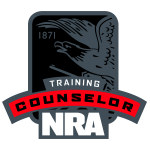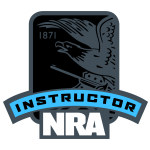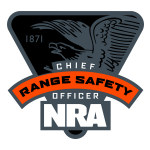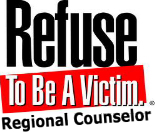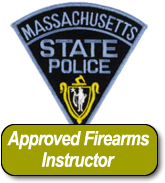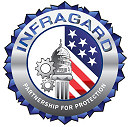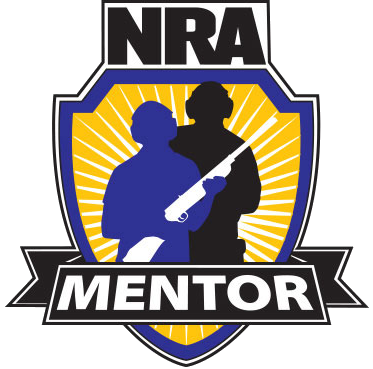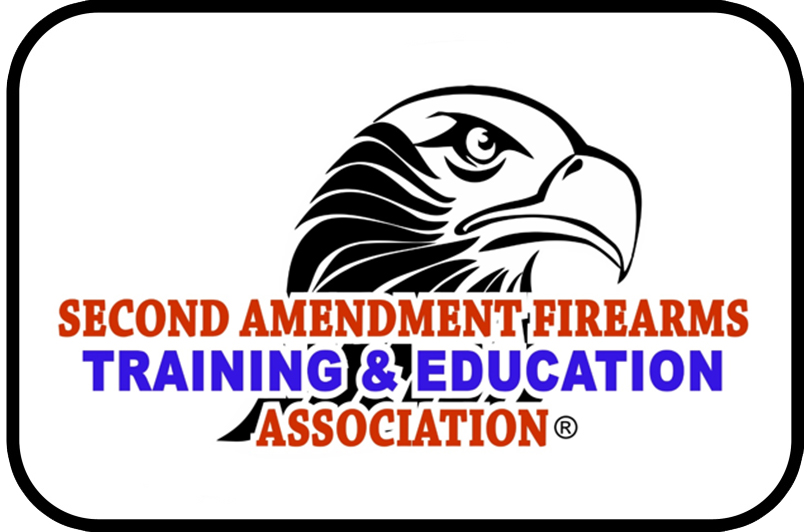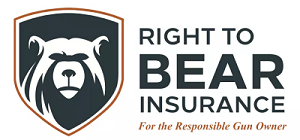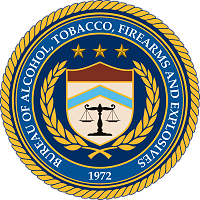NRA Rules for Safe Gun Handling
 |
1. ALWAYS keep the gun pointed in a safe direction.This is the primary rule of gun safety. A safe direction means that the gun is pointed so that even if it were to go off it would not cause injury or damage. The key to this rule is to control where the muzzle or front end of the barrel is pointed at all times. Common sense dictates the safest direction, depending on different circumstances. |
|
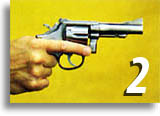 |
2. ALWAYS keep your finger off the trigger until ready to shoot.When holding a gun, rest your finger up on the slide above the trigger. Until you are actually ready to fire, do not touch the trigger. |
|
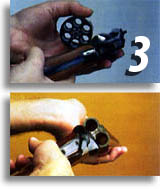 |
3. ALWAYS keep the gun unloaded until ready to use.Whenever you pick up a gun, immediately engage the safety device if possible, and, if the gun has a magazine, remove it before opening the action and looking into the chamber(s) which should be clear of ammunition. If you do not know how to open the action or inspect the chamber(s), leave the gun alone and get help from someone. Note: Personal protection and home defense is a "use"! |
When using or storing a gun, always follow these NRA rules:
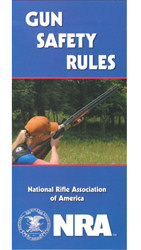 4. Know your target and what is beyond.
4. Know your target and what is beyond.
Be absolutely sure you have identified your target beyond any doubt. Equally important, be aware of the area beyond your target. This means observing your prospective area of fire before you shoot. Never fire in a direction in which there are people or any other potential for mishap. Think first. Shoot second. Remember that bullets can penetrate walls, trees, travel miles and still injure people in adjoining homes miles away.
5. Know how to use the gun safely.
Before handling a gun, learn how it operates and read the owners manual. Know its basic parts, how to safely open and close the action and remove any ammunition from the gun or magazine. Remember, a gun's mechanical safety device is never foolproof. Nothing can ever replace safe gun handling. Email me for training classes at This email address is being protected from spambots. You need JavaScript enabled to view it.
6. Be sure the gun is safe to operate.
Just like other tools, guns need regular maintenance to remain operable. Regular cleaning and proper storage are a part of the gun's general upkeep. If there is any question concerning a gun's ability to function, a knowledgeable gunsmith should look at it.
7. Use only the correct ammunition for your gun.
Only BBs, pellets, cartridges or shells designed for a particular gun can be fired safely in that gun. Most guns have the ammunition type stamped on the barrel. Ammunition can be identified by information printed on the box and sometimes stamped on the cartridge. Do not shoot the gun unless you know you have the proper ammunition.
8. Wear eye and ear protection as appropriate.
Guns are loud and the noise can cause hearing damage. They can also emit debris and hot gas that could cause eye injury. For these reasons, shooting glasses and hearing protectors should be worn by shooters and spectators.
9. Never use alcohol or over-the-counter, prescription or other drugs before or while shooting.
Alcohol, as well as any other substance likely to impair normal mental or physical bodily functions, must not be used before or while handling or shooting guns.
10. Store guns so they are not accessible to unauthorized persons.
Many factors must be considered when deciding where and how to store guns. A person's particular situation will be a major part of the consideration. Dozens of gun storage devices, as well as locking devices that attach directly to the gun, are available. However, mechanical locking devices, like the mechanical safeties built into guns, can fail and should not be used as a substitute for safe gun handling and the observance of all gun safety rules.
Be aware that certain types of guns and many shooting activities require additional safety precautions.
Cleaning
Regular cleaning is important in order for your gun to operate correctly and safely. Taking proper care of it will also maintain its value and extend its life. Your gun should be cleaned every time that it is used.
A gun brought out of prolonged storage should also be cleaned before shooting. Accumulated moisture and dirt, or solidified grease and oil, can prevent the gun from operating properly.
Before cleaning your gun, make absolutely sure that it is unloaded. The gun's action should be open during the cleaning process. Also, be sure that no ammunition is present in the cleaning area.
A note about Accidental/Negligent Discharges!
99.99% of Accidental Discharges are the result of the user not adhering to the basic safety rules and are considered Negligent Discharges, Not Accidental. The other .01% are due to malfunctions of the firearm such as a broken sear or faulty safety device and are very rare. So always remember your safety rules and always remember that safeties on firearms are mechanical devices that CAN FAIL.


